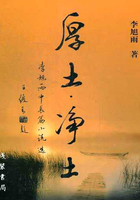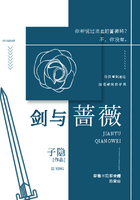As far as concerns the literature of the Greeks, whose language holds a more illustrious place than any of the languages of the other nations, history mentions two schools of philosophers, the one called the Italic school, originating in that part of Italy which was formerly called Magna Graecia; the other called the Ionic school, having its origin in those regions which are still called by the name of Greece.The Italic school had for its founder Pythagoras of Samos, to whom also the term "philosophy"is said to owe its origin.For whereas formerly those who seemed to excel others by the laudable manner in which they regulated their lives were called sages, Pythagoras, on being asked what he professed, replied that he was a philosopher, that is, a student or lover of wisdom; for it seemed to him to be the height of arrogance to profess oneself a sage.(1) The founder of the Ionic school, again, was Thales of Miletus, one of those seven who were styled the "seven sages," of whom six were distinguished by the kind of life they lived, and by certain maxims which they gave forth for the proper conduct of life.Thales was distinguished as an investigator into the nature of things; and, in order that he might have successors in his school, he committed his dissertations to writing.That, however, which especially rendered him eminent was his ability, by means of astronomical calculations, even to predict eclipses of the sun and moon.He thought, however, that water was the first principle of things, and that of it all the elements of the world, the world itself, and all things which are generated in it, ultimately consist.Over all this work, however, which, when we consider the world, appears so admirable, he set nothing of the nature of divine mind.To him succeeded Anaximander, his pupil, who held a different opinion concerning the nature of things; for he did not hold that all things spring from one principle, as Thales did, who held that principle to be water, but thought that each thing springs from its own proper principle.
These principles of things he believed to be infinite in number, and thought that they generated innumerable worlds, and all the things which arise in them.He thought, also, that these worlds are subject to a perpetual process of alternate dissolution and regeneration, each one continuing for a longer or shorter period of time, according to the nature of the case; nor did he, any more than Thales, attribute anything to a divine mind in the production of all this activity of things.Anaximander left as his successor his disciple Anaximenes, who attributed all the causes of things to an infinite air.He neither denied nor ignored the existence of gods, but, so far from believing that the air was made by them, he held, on the contrary, that they sprang from the air.Anaxagoras, however, who was his pupil, perceived that a divine mind was the productive cause of all things which we see, and said that all the various kinds of things, according to their several modes and species, were produced out of an infinite matter consisting of homogeneous particles, but by the efficiency of a divine mind.Diogenes, also, another pupil of Anaximenes, said that a certain air was the original substance of things out of which all things were produced, but that it was possessed of a divine reason, without which nothing could be produced from it.Anaxagoras was succeeded by his disciple Archelaus, who also thought that all things consisted of homogeneous particles, of which each particular thing was made, but that those particles were pervaded by a divine mind, which perpetually energized all the eternal bodies, namely, those particles, so that they are alternately united and separated.Socrates, the master of Plato, is said to have been the disciple of Archelaus; and on Plato's account it is that I have given this brief historical sketch of the whole history of these schools.
CHAP.3.--OF THE SOCRATIC PHILOSOPHY.















